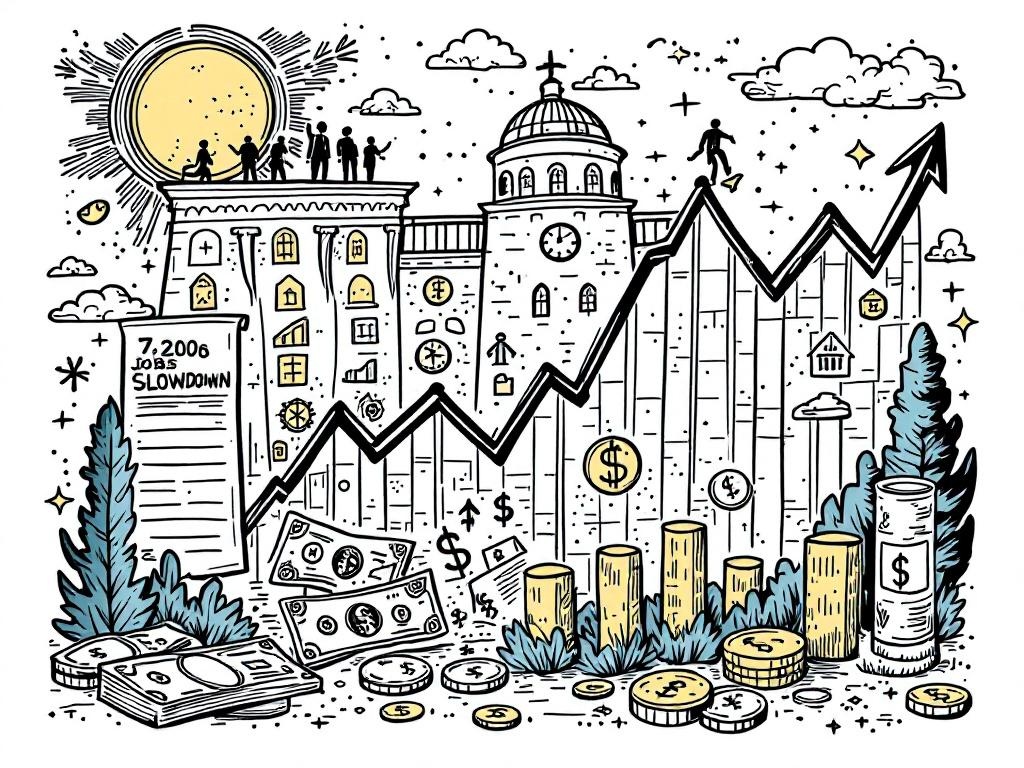July Jobs Report Reveals Sharp Economic Slowdown in U.S.

Washington, D.C., Monday, 4 August 2025.
The U.S. economy shows signs of significant slowdown with only 73,000 jobs added in July, sharply below expectations, raising recession concerns and impacting future economic policies.
Weak Job Growth and Revised Estimates
The recent July jobs report, published by the U.S. Bureau of Labor Statistics (BLS), indicated a subdued job growth of only 73,000, significantly falling short of the anticipated increase of 115,000 jobs. Moreover, the employment figures for May and June 2025 were adjusted downward by a total of 258,000 jobs, exacerbating concerns about the labor market’s current condition [1][2].
Economic Indicators and Market Reactions
The sluggish pace of job creation reflects broader economic challenges, with the U.S. gross domestic product (GDP) increasing at a mere 3% annualized pace in Q2 2025. The first half of the year’s GDP growth averaged only around 1.2%, driven by feeble consumer spending that rose just 1% during this period [1]. The unemployment rate rose to 4.2% in July, accompanied by a rise in the number of unemployed individuals by 221,000 [2]. These worrying figures contributed to further declines in the stock market, with the Dow Jones Industrial Average dropping over 600 points as investors responded negatively to the report [1][3].
Political and Policy Reactions
President Donald Trump reacted strongly to the disappointing jobs figures by dismissing the BLS Commissioner Erika McEntarfer, accusing her of political bias. This action is part of Trump’s longer historical trend of criticizing the Bureau’s employment reports. The decision has been met with criticism from various quarters, arguing that it undermines the statistical independence of federal bodies [4][5]. Concurrently, expectations for a Federal Reserve interest rate cut have notably increased, rising to an 86.5% likelihood for the September meeting, as a result of the weak jobs data [6].
Implications for the Labor Market and Economy
The slowdown in job creation is influenced by multiple factors, including the Trump administration’s trade and immigration policies. Recently imposed tariffs on imports from countries like Canada and Brazil, along with immigration curbs leading to a decrease in the labor force, have added to economic uncertainties and may further constrain job growth in the future [7][8]. Wilmington Trust’s Chief Economist, Luke Tilley, has expressed concern, suggesting a 50% probability that these developments might slow the economy into a recession [1].
Sources
- www.cnbc.com
- apnews.com
- finance.yahoo.com
- www.investopedia.com
- abcnews.go.com
- www.reuters.com
- www.forbes.com
- apnews.com